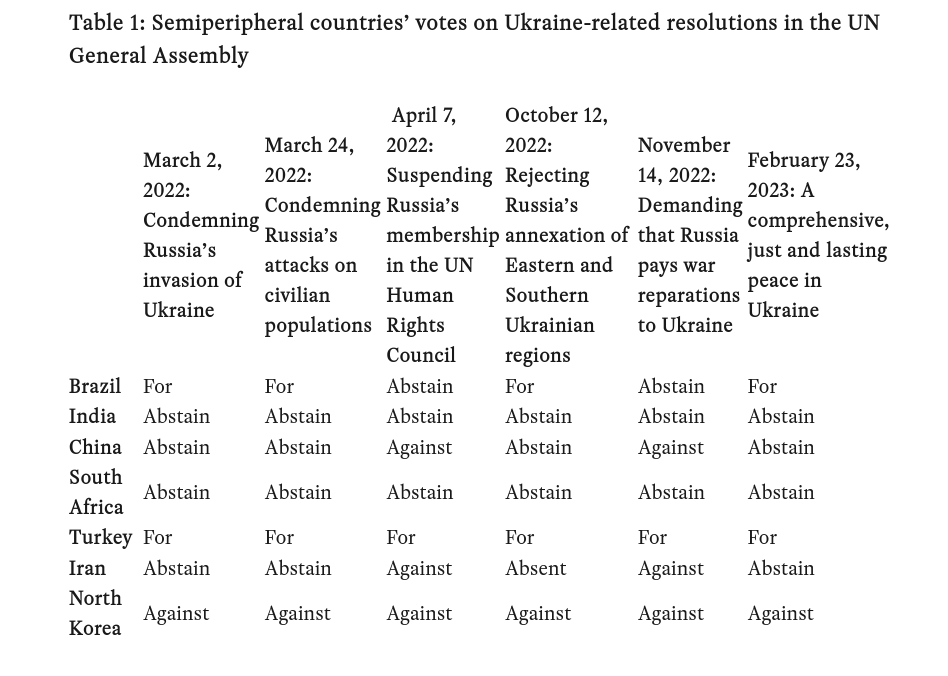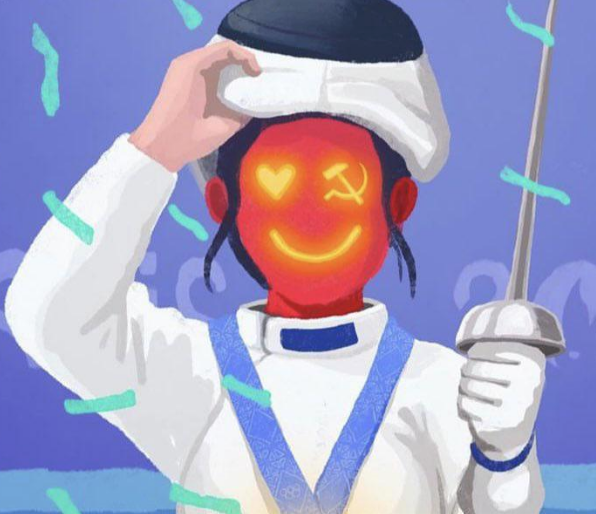Chad, a country in north-central Africa, borders a lot of active geopolitical areas - Niger to the West, Libya to the North, Sudan to the East - but is scarcely discussed itself. I’m not really knowledgable enough to give anything like a decent history, but the recent gist is that the country was ruled for three decades by Idriss Déby until he was killed in battle in 2021 while fighting northern rebels. Idriss was part of a few wars - such as the one against Gaddafi in Libya, and also the Second Congo War. While he was initially elected democratically in 1996 and 2001, he then eliminated term limits and just kept on going.
After his death, Chad has been ruled by his son, Mahamat Idriss Déby. In early May 2024, elections began which were meant to result in the transition from a military-ruled goverment to a civilian-ruled one. Needless to say, Mahamat won the election - with 61% of the vote. Both father and son have been on the side of the French and the US, whereas the opposition is against foreign colonizers and has attempted to put pressure on the government in numerous ways to achieve a more substantial independence. France maintains a troop presence in Chad, and it’s something of a stronghold for them - when French troops were forced out of Niger, they retreated to Chad. However, it’s not clear even to the people inside Chad what precisely the French are doing there. I mean, we know what their presence is really for - imperialism and election rigging - but in an official sense, they don’t seem to be doing much to help the country materially. What is clear is that they like to intervene on behalf of the ruling regime and against rebels a whole lot - the most interventions by France in any African country, in fact.
The United States, so keen on human rights and democracy in so many places around the world like Russia, Iran, and China, have - for some strange reason! - decided for the last 30 years that they can live with a couple dictators and wars in the case of Chad. In fact, various American state propaganda firms like the ISW and Washington Post have warned the current government about the Wagner Group interfering with the country and spreading anti-Western sentiments as in the rest of the Sahel.
Things are very tough for Chad. They are among the poorest countries in Africa and host about one million people fleeing from nearby conflicts, which is a pretty large number when Chad has a population of about 17 million.
With the French Empire fading, they are beginning to run out of places to retreat to in Africa. Macron, in January, said that his defense council had decided to reduce troop presence in Gabon, Senegal, and the Côte d’Ivoire, though has maintained troop levels in Chad and Djibouti. Meanwhile, on the other side of the planet from France, anti-empire sentiments are boiling to the surface in New Caledonia/Kanaky, which is unfortunate for the French military as they really need that island, both for the massive nickel reserves, but also as an unsinkable aircraft carrier in the Pacific just in case a conflict with China pops off.
The COTW (Country of the Week) label is designed to spur discussion and debate about a specific country every week in order to help the community gain greater understanding of the domestic situation of often-understudied nations. If you’ve wanted to talk about the country or share your experiences, but have never found a relevant place to do so, now is your chance! However, don’t worry - this is still a general news megathread where you can post about ongoing events from any country.
The Country of the Week is Chad! Feel free to chime in with books, essays, longform articles, even stories and anecdotes or rants. More detail here.
Please check out the HexAtlas!
The bulletins site is here!
The RSS feed is here.
Last week’s thread is here.
Israel-Palestine Conflict
Sources on the fighting in Palestine against Israel. In general, CW for footage of battles, explosions, dead people, and so on:
UNRWA daily-ish reports on Israel’s destruction and siege of Gaza and the West Bank.
English-language Palestinian Marxist-Leninist twitter account. Alt here.
English-language twitter account that collates news (and has automated posting when the person running it goes to sleep).
Arab-language twitter account with videos and images of fighting.
English-language (with some Arab retweets) Twitter account based in Lebanon. - Telegram is @IbnRiad.
English-language Palestinian Twitter account which reports on news from the Resistance Axis. - Telegram is @EyesOnSouth.
English-language Twitter account in the same group as the previous two. - Telegram here.
English-language PalestineResist telegram channel.
More telegram channels here for those interested.
Various sources that are covering the Ukraine conflict are also covering the one in Palestine, like Rybar.
Russia-Ukraine Conflict
Examples of Ukrainian Nazis and fascists
Examples of racism/euro-centrism during the Russia-Ukraine conflict
Sources:
Defense Politics Asia’s youtube channel and their map. Their youtube channel has substantially diminished in quality but the map is still useful.
Moon of Alabama, which tends to have interesting analysis. Avoid the comment section.
Understanding War and the Saker: reactionary sources that have occasional insights on the war.
Alexander Mercouris, who does daily videos on the conflict. While he is a reactionary and surrounds himself with likeminded people, his daily update videos are relatively brainworm-free and good if you don’t want to follow Russian telegram channels to get news. He also co-hosts The Duran, which is more explicitly conservative, racist, sexist, transphobic, anti-communist, etc when guests are invited on, but is just about tolerable when it’s just the two of them if you want a little more analysis.
On the ground: Patrick Lancaster, an independent and very good journalist reporting in the warzone on the separatists’ side.
Unedited videos of Russian/Ukrainian press conferences and speeches.
Pro-Russian Telegram Channels:
Again, CW for anti-LGBT and racist, sexist, etc speech, as well as combat footage.
https://t.me/aleksandr_skif ~ DPR’s former Defense Minister and Colonel in the DPR’s forces. Russian language.
https://t.me/Slavyangrad ~ A few different pro-Russian people gather frequent content for this channel (~100 posts per day), some socialist, but all socially reactionary. If you can only tolerate using one Russian telegram channel, I would recommend this one.
https://t.me/s/levigodman ~ Does daily update posts.
https://t.me/patricklancasternewstoday ~ Patrick Lancaster’s telegram channel.
https://t.me/gonzowarr ~ A big Russian commentator.
https://t.me/rybar ~ One of, if not the, biggest Russian telegram channels focussing on the war out there. Actually quite balanced, maybe even pessimistic about Russia. Produces interesting and useful maps.
https://t.me/epoddubny ~ Russian language.
https://t.me/boris_rozhin ~ Russian language.
https://t.me/mod_russia_en ~ Russian Ministry of Defense. Does daily, if rather bland updates on the number of Ukrainians killed, etc. The figures appear to be approximately accurate; if you want, reduce all numbers by 25% as a ‘propaganda tax’, if you don’t believe them. Does not cover everything, for obvious reasons, and virtually never details Russian losses.
https://t.me/UkraineHumanRightsAbuses ~ Pro-Russian, documents abuses that Ukraine commits.
Pro-Ukraine Telegram Channels:
Almost every Western media outlet.
https://discord.gg/projectowl ~ Pro-Ukrainian OSINT Discord.
https://t.me/ice_inii ~ Alleged Ukrainian account with a rather cynical take on the entire thing.
jacobin posted another silly article

I just feel the third campist vibes emanating from the pixels on the screen.
american imperialism: dropping bombs on refugee camps, couping democratically elected heads of state, starting decades-long wars on the other side of the planet for the sake of profit
chinese imperialism: building airports in africa
Death to America
Marxist theories of imperialism — both the classic ones advanced by Rosa Luxemburg and Vladimir Lenin and the modern ones, such as David Harvey’s theory of the “new imperialism” — link aggressive foreign policy to the contradictions of capital accumulation. In this view, interimperialist rivalries have a structural cause that is irreducible to messianic imperialist ideologies or the search for security that creates insecurities for other states, as in the realist accounts of the “security dilemma.” According to the Marxist interpretation, domestic industrial overcapacity and the overaccumulation of capital compel the national bourgeoisie to seek external expansion. In this endeavor, capital enlists the help of the state to protect its overseas investments, markets, and trade routes. The clash between nation-based capitals over markets and profitable outlets for investment leads to interimperialist rivalries. Some argue that such conflicts are obsolete due to the emergence of the transnational capitalist class (TCC), with the nascent “transnational state” to serve its interests. However, the TCC thesis looks increasingly problematic from an empirical standpoint. Research shows that global capitalist networks remain highly regionalized and uneven, with limited interlocking between the Global North and other countries, including China. The concept of the “transnational state” seems even more far-fetched, with rising militarization, protectionism, trade wars, and conflicting geopolitical visions such as the US “Pivot to Asia” versus the Chinese “Belt and Road Initiative.”
One might respond that the US-China rivalry could be driven by national security elites and their competing visions of the “national interest,” rather than by capitalist elites who would have otherwise preferred the globalized accumulation regime without the national divisions. In other words, due to the relative autonomy of the state from capitalist interests, interimperialist rivalries may have noneconomic causes. While this argument cannot be dismissed in principle (and, as we shall see, it plays a central role in explaining the US-Russian confrontation), it is hardly applicable to the US-China rivalry. Based on the historical record and Chinese strategic thinking, we might well deduce that China in particular is a reluctant imperialist nation, with a certain tradition of avoiding confrontation. Nevertheless, its relentless search for markets and investment opportunities abroad, driven by domestic overcapacity and capital overaccumulation, almost mechanically leads it to expand its global military presence as well, creating both the economic and the security tensions with the United States. Facing the threat of expanding Chinese capital (which is tightly interwoven with the state), factions of the US capitalist class have embraced a more confrontational stance toward China despite the economic interdependence between the two countries and the importance of the vast Chinese market for American businesses. The stage is set for the inter-imperialist rivalry that will define the twenty-first century.
This is, basically, where the “Soviet Union = imperialist” model gets you. I don’t even disagree with a lot of the analysis on a theoretical basis, I just think that doing all this and then immediately, almost instinctively lumping China in as just another imperialist because they like, have markets and sell stuff to developing countries, leads to incorrect predictions and conclusions from otherwise good theory.
From Chapter 2 of Desai’s Geopolitical Economy:
[UCD = uneven and combined development, a theory which held sway during the time of the Bolsheviks]
Postwar developments made UCD and the classical theories of imperialism more, not less, relevant. If capitalist competition did not lead to further world wars, this was substantially because the USSR became part of UCD’s further unfolding. As a revolutionary state founded on UCD’s understanding of the capitalist world order, it took opposition to imperialism beyond national (capitalist) opposition to imperialism to encompass working-class opposition as well. As such it represented the strongest form of combined development: rather than trying to hasten capitalist development it sought to skip capitalism entirely. That communist China did so too, and survived to rank as the strongest of the so-called BRIC contender countries in the early twenty-first century, is also telling.
The significance of Soviet combined development was not confined to its borders. After its decisive role in the defeat of fascism in the Second World War, the USSR ensured decolonization and supported combined development in newly independent countries, strengthening resistance to imperial pressure among many ex-colonies. The USSR’s existence also ensured that combined development, as well as ‘full employment’ and welfarist policies, had to be tolerated in recovering economies. As Chapter 7 will show, by the time the USSR disintegrated, sufficient combined development had taken place among recovering and developing countries to make the US ‘victory’ in the cold war pyrrhic.
Not saying that current-day China and the USSR are one-to-one matches; China seems less willing to supply weaponry to revolutionary movements (or if they are, it’s done so secretly that not even the US has found a way to accuse them of doing it much). But they play a remarkably similar role given the different historical conditions that we’re in, 35 years on from the collapse of the USSR and like 75 years on from the time of Stalin.
Told you about third campism, lol.
the most striking example is Russia’s support of the murderous Syrian dictator Bashar al-Assad
Who must go?
Left in form. Right in essence.

DPRK my beloved

wishing china would re-hire that one official that said the post soviet states do not exist under international law and made the baltic states throw a fit






